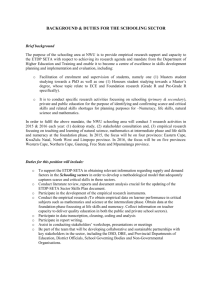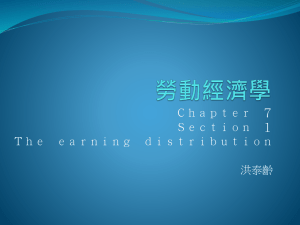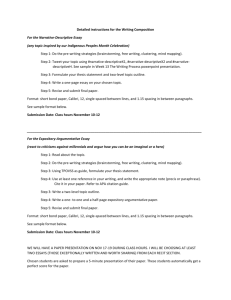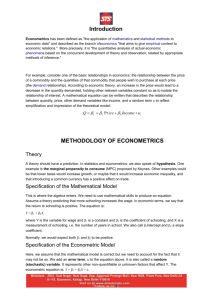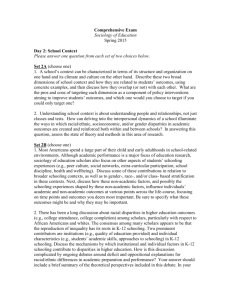Virtual Schooling
advertisement
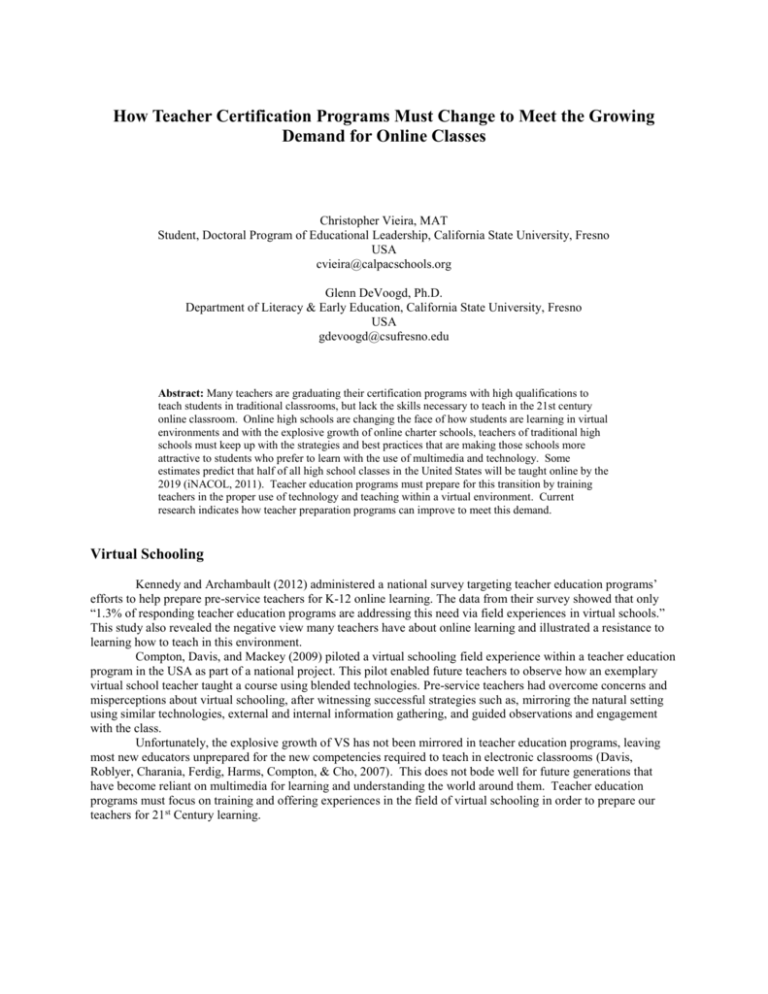
How Teacher Certification Programs Must Change to Meet the Growing Demand for Online Classes Christopher Vieira, MAT Student, Doctoral Program of Educational Leadership, California State University, Fresno USA cvieira@calpacschools.org Glenn DeVoogd, Ph.D. Department of Literacy & Early Education, California State University, Fresno USA gdevoogd@csufresno.edu Abstract: Many teachers are graduating their certification programs with high qualifications to teach students in traditional classrooms, but lack the skills necessary to teach in the 21st century online classroom. Online high schools are changing the face of how students are learning in virtual environments and with the explosive growth of online charter schools, teachers of traditional high schools must keep up with the strategies and best practices that are making those schools more attractive to students who prefer to learn with the use of multimedia and technology. Some estimates predict that half of all high school classes in the United States will be taught online by the 2019 (iNACOL, 2011). Teacher education programs must prepare for this transition by training teachers in the proper use of technology and teaching within a virtual environment. Current research indicates how teacher preparation programs can improve to meet this demand. Virtual Schooling Kennedy and Archambault (2012) administered a national survey targeting teacher education programs’ efforts to help prepare pre-service teachers for K-12 online learning. The data from their survey showed that only “1.3% of responding teacher education programs are addressing this need via field experiences in virtual schools.” This study also revealed the negative view many teachers have about online learning and illustrated a resistance to learning how to teach in this environment. Compton, Davis, and Mackey (2009) piloted a virtual schooling field experience within a teacher education program in the USA as part of a national project. This pilot enabled future teachers to observe how an exemplary virtual school teacher taught a course using blended technologies. Pre-service teachers had overcome concerns and misperceptions about virtual schooling, after witnessing successful strategies such as, mirroring the natural setting using similar technologies, external and internal information gathering, and guided observations and engagement with the class. Unfortunately, the explosive growth of VS has not been mirrored in teacher education programs, leaving most new educators unprepared for the new competencies required to teach in electronic classrooms (Davis, Roblyer, Charania, Ferdig, Harms, Compton, & Cho, 2007). This does not bode well for future generations that have become reliant on multimedia for learning and understanding the world around them. Teacher education programs must focus on training and offering experiences in the field of virtual schooling in order to prepare our teachers for 21st Century learning. Improving Teacher Education Archambault, Wetzel, Foulger, and Williams (2010) conducted a post-survey of pre-service teachers willing to participate in a project designed to transform their pedagogy and provide them with training in online tools to better assist them in teaching. The participants found that online tools such as social networking actually improved student achievement. The very role of the teacher was altered to reflect that of facilitator, working with students by giving instant feedback via online communications and guiding them through the learning process, as they became learners themselves of the technology they were using. This study hints at what reforms teacher education programs might include to better train teachers. Online teacher training must focus on preparing teachers in “mastering the delivery strategies and methods for online teaching, updating their technological skill set, learning how to increase student interaction, learning how to create online communities, and encouraging students to continuously evaluate their courses” (Al-Salman, 2011, p.11). More specifically, the following areas were shown to be key areas of focus for teachers of virtual schooling (Compton, Davis, and Mackey, 2009): 1. 2. 3. Competence — Curriculum development in teacher education to map and adapt or create selected courses that will include assessment of virtual schooling competence against standards. This is underpinned by strategic professional and organizational development. Tools — Instructional materials that are designed to illustrate and provide experiences with virtual schooling concepts and issues. Virtual Community— Bringing together teacher educators from around the U.S. to facilitate adoption of virtual schooling into teacher education nationwide. Develop partnerships with virtual schools and service organizations (p.2) With these specific strategies and areas of focus at the forefront of teacher education, pre-service teachers can expect to be prepared to instruct students in the ever-growing world of online learning. If teacher education programs adjust to meet the demand of online courses from students who learn in a multifaceted technological environment, the growth of online education will be matched with a highly qualified faculty ready to instruct students in the complex environment of virtual schooling. Works Cited Al-Salman, S. M. (2011). Faculty in online learning programs: Competencies and barriers to success. Journal Of Applied Learning Technology, 1(4), 6-13. Archambault, L., Wetzel, K., Foulger, T. S., & Williams, M. (2010). Professional development 2.0: Transforming teacher education pedagogy with 21st century tools. Journal Of Digital Learning In Teacher Education, 27(1), 4-11. Compton, L., Davis, N., & Mackey, J. (2009). Field experience in virtual schools--to be there virtually. Journal Of Technology & Teacher Education, 17(4), 459-477. Davis, N., Roblyer, M., Charania, A., Ferdig, R., Harms, C., Compton, L., & Cho, M. (2007). Illustrating the “virtual” in virtual schooling: Challenges and strategies for creating real tools to prepare virtual teachers. Internet & Higher Education, 10(1), 27-39. iNACOL (2011). Offers new standards for online learning. Electronic Education Report, 18(21), 2-3. Kennedy, K., & Archambault, L. (2012). Offering preservice teachers field experiences in k-12 online learning: A national survey of teacher education programs. Journal Of Teacher Education, 63(3), 185-200.


